Health Economics
Improving surgical outcomes through collaborative research
The NIHR Global Health Research Unit on Global Surgery
Improving surgical outcomes through collaborative research
Health Economics
Health Economics is the study of how individuals, healthcare providers and governments make health and healthcare decisions in the presence of limited resources. Thus, it applies the general principles of economics to the allocation of scarce resources in health and healthcare. In limited resource settings, appropriate information on the relative clinical effectiveness and cost-effectiveness of health care interventions are vital to support decisions on resource allocation. In collaboration with the NIHR Global Surgery Unit (GSU) Policy & Implementation Committee, health economic information will be used to guide and support decision making in low- and middle- income (LMIC) settings. To this end, the planned health economic evidence generation includes the undertaking of a range of different approaches such as systematic reviews, economic modelling, cost studies and economic evaluations alongside trials.
Health Economics Research
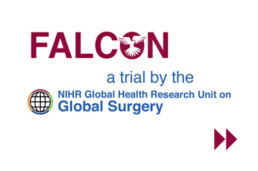
FALCON TRIAL
The FALCON trial looks into the prevention of surgical site infections (SSI) in low- and middle- income countries.
The health economics sub-study within FALCON is named KIWI (Key Resource Use In Wound Infection).
Surgical site infection (SSI) is a worldwide problem which has morbidity, mortality and financial consequences .Previous studies in LMICs on the costs of SSI have been limited by small sample size single-centre hospitals which did not capture costs occurring after hospital discharge. The lack of follow up is a problem as SSI can occur after discharge and costs associated with SSI have been shown to persist beyond 30 days. The main FALCON trial is assessing different treatment combinations to reduce Surgical Site Infection (SSI). The FALCON KIWI sub study is assessing the resource use and costs for patients with and without SSI across several hub countries.
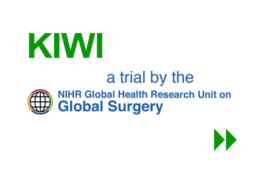
KIWI STUDY
The FALCON KIWI sub study is assessing the resource use and costs for patients with and without SSI across several hub countries. KIWI includes resource use collection (via additional CRFs) up to the 30-day follow-up assessment for patients and extended follow-up for any patients with an ongoing wound infection up to 60 days post-surgery.’
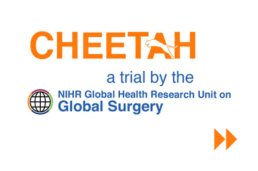
CHEETAH TRIAL
The main CHEETAH trial is assessing whether the practice of using separate, sterile gloves and instruments to close wounds at the end of surgery can reduce surgical site infection at 30-days post-surgery for patients undergoing clean-contaminated, contaminated or dirty abdominal surgery, compared to current routine hospital practice.
Using information from FALCON KIWI and primary data collection in CHEETAH, the cost-effectiveness of the changing gloves/instruments prior to wound closure compared to current routine hospital practice will be assessed.
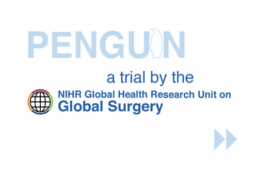
PENGUIN TRIAL
The PENGUIN trial is a 2 x 2 factorial, international pragmatic randomised trial. The trial aims to assess whether preoperative chlorhexidine mouthwash when compared to no-mouthwash-surgery can reduce incidence of post-operative pneumonia (POP) and whether perioperative liberal oxygen versus restrictive oxygen can reduce incidence surgical site infections (SSI) at 30-days among abdominal surgery patients.
Health Economics Activities with Pump Priming Studies at the Global Surgery Unit
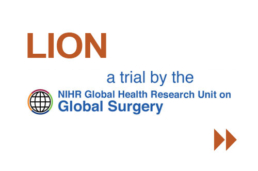
LION STUDY
LION (LaparoscopIc Versus Open Appendectomy): Cost comparison in a lower- middle income setting
This study aims to compare the outcome and cost of conventional open and laparoscopic appendectomy for clinically confirmed, uncomplicated, acute appendicitis in a low resource setting. Although the cost effectiveness of laparoscopic surgery has been investigated previously in high human development index (HDI) countries, similar studies are lacking in low and middle HDI countries.
Led by Dr Adewale Adisa at the NIHR hub in Nigeria, this study will compare outcomes following open and laparoscopic appendectomy in approximately 150 patients at 3 hospitals in Nigeria.
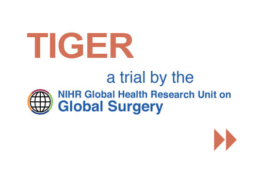
TIGER STUDY
TIGER (Task shifting Inguinal hernia Repair between surgeons and technicians): development of a randomised trial in low and middle income countries
Can technicians perform mesh inguinal hernia repair safely and cost-effectively in rural surgical settings in low and middle income countries?
This pilot trial aims to investigate delivery of a standardised, measurable training programme for technicians to perform a mesh inguinal hernia repair.
Bringing together surgeons, researchers and policy makers to set the local research agenda according to patient need in LMIC and ensuring all patients have the opportunity to take part in our research.
